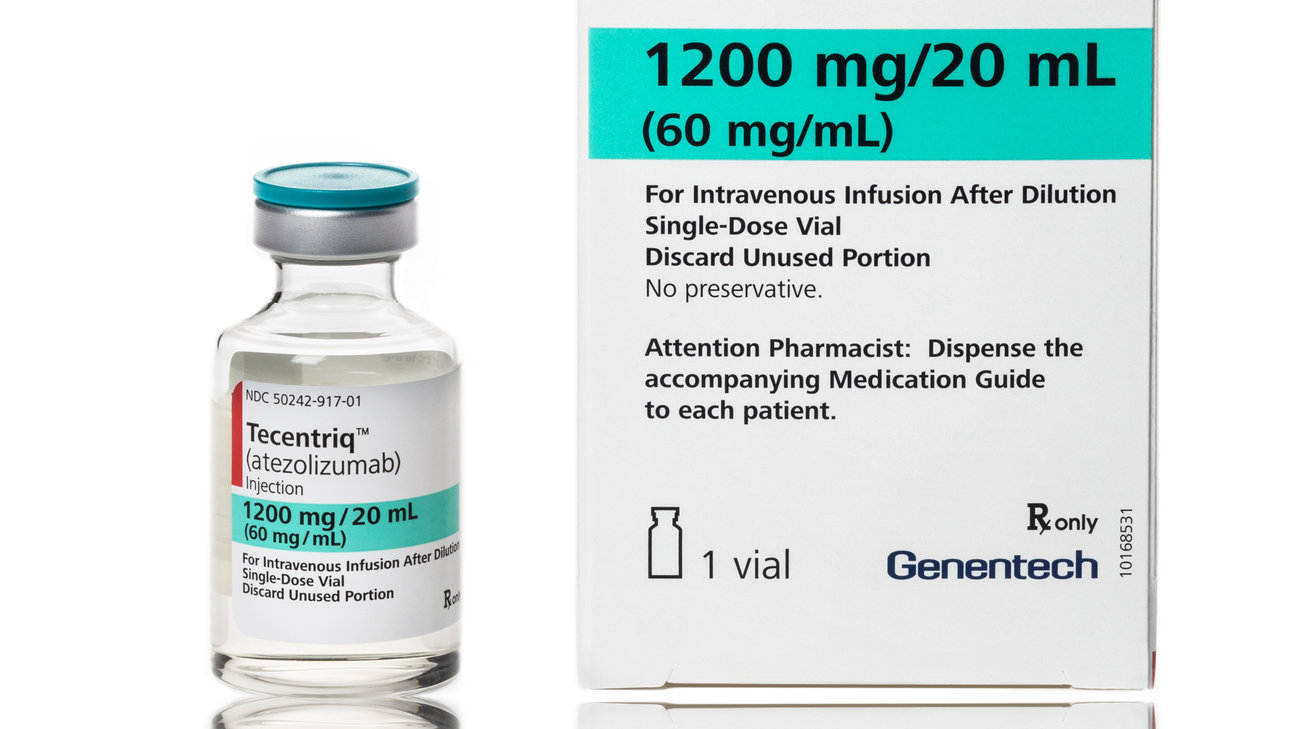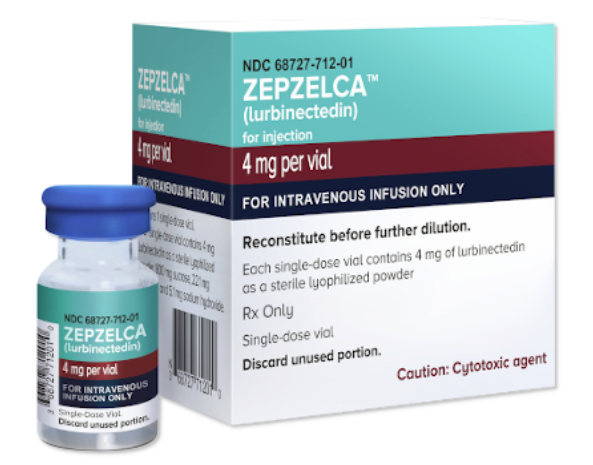Tecentriq (Atezolizumab) vs Zepzelca (lurbinectedin)
Tecentriq (Atezolizumab) vs Zepzelca (lurbinectedin)
Tecentriq (Atezolizumab) is an immune checkpoint inhibitor that works by blocking the PD-L1 protein, thereby enhancing the body's immune response against cancer cells, and is commonly used in the treatment of various types of cancers, including non-small cell lung cancer, small cell lung cancer, and urothelial carcinoma. Zepzelca (Lurbinectedin) is a newer, selective oncology medication that acts by inhibiting transcription and inducing DNA double-strand breaks, leading to cancer cell death, and is specifically indicated for the treatment of metastatic small cell lung cancer after disease progression on or after platinum-based chemotherapy. When deciding between the two, it is crucial to consider the specific type of cancer, the individual's previous treatments and responses, potential side effects, and the overall treatment goals, as these medications have different mechanisms of action and are approved for different indications.
Difference between Tecentriq and Zepzelca
| Metric | Tecentriq (Atezolizumab) | Zepzelca (lurbinectedin) |
|---|---|---|
| Generic name | Atezolizumab | Lurbinectedin |
| Indications | Urothelial carcinoma, non-small cell lung cancer, triple-negative breast cancer | Small cell lung cancer |
| Mechanism of action | PD-L1 inhibitor | Alkylating agent |
| Brand names | Tecentriq | Zepzelca |
| Administrative route | Intravenous infusion | Intravenous infusion |
| Side effects | Fatigue, nausea, infections, decreased appetite, dyspnea, cough, arthralgia | Myelosuppression, fatigue, increased liver enzymes, nausea, decreased appetite, musculoskeletal pain |
| Contraindications | None known | None known |
| Drug class | Monoclonal antibody, Immune checkpoint inhibitor | Alkylating drug |
| Manufacturer | Genentech (Roche) | Pharma Mar, Jazz Pharmaceuticals |
Efficacy
Tecentriq (Atezolizumab) Efficacy in Lung Cancer
Tecentriq (Atezolizumab) is an immune checkpoint inhibitor specifically targeting the PD-L1 protein, and it has been approved for the treatment of several types of lung cancer, including non-small cell lung cancer (NSCLC) and small cell lung cancer (SCLC). In clinical trials, Tecentriq has shown a significant improvement in overall survival in patients with NSCLC, particularly in those with high PD-L1 expression. The drug works by enabling the immune system to better recognize and attack cancer cells. When used as a first-line treatment in combination with chemotherapy, Tecentriq has been shown to prolong the time patients live without their disease progressing (progression-free survival) compared to chemotherapy alone.
For SCLC, Tecentriq in combination with chemotherapy (etoposide and either carboplatin or cisplatin) is approved for the first-line treatment of adults with extensive-stage small cell lung cancer (ES-SCLC). This approval was based on a phase III trial that demonstrated a significant improvement in overall survival and progression-free survival for patients treated with Tecentriq in combination with chemotherapy versus chemotherapy alone. The addition of Tecentriq to the chemotherapy regimen represents a meaningful advancement in the treatment of this aggressive form of lung cancer.
Zepzelca (Lurbinectedin) Efficacy in Lung Cancer
Zepzelca (Lurbinectedin) is a newer anticancer agent that has been granted accelerated approval by the FDA for the treatment of adults with metastatic small cell lung cancer (SCLC) with disease progression on or after platinum-based chemotherapy. Lurbinectedin is a selective inhibitor of oncogenic transcription and works by binding to the DNA minor groove, interfering with the replication process and resulting in cell death. Clinical trials have demonstrated its efficacy in SCLC, with a significant proportion of patients achieving a reduction in tumor size (objective response rate). The duration of response has also been notable, with some patients maintaining the response for six months or longer.
While Zepzelca has shown promise in the treatment of SCLC, its approval is based on the results of a single-arm clinical trial, and as such, continued approval may be contingent upon the verification and description of clinical benefit in confirmatory trials. Nevertheless, the availability of Lurbinectedin provides an important treatment option for patients with SCLC who have limited therapies available after the first line of treatment. Ongoing studies are expected to further define the role of Zepzelca in the treatment of lung cancer, including its use in earlier lines of therapy and in combination with other agents.
Regulatory Agency Approvals
Tecentriq
-
European Medical Agency (EMA), European Union

-
Food and Drug Administration (FDA), USA

-
Health Canada

-
Pharmaceuticals and Medical Devices Agency (PMDA), Japan

-
Therapeutic Goods Administration (TGA), Australia

-
Medsafe (NZ)

Zepzelca
-
Food and Drug Administration (FDA), USA

Access Tecentriq or Zepzelca today
If Tecentriq or Zepzelca are not approved or available in your country (e.g. due to supply issues), you can access them via Everyone.org.
How it works

Make an enquiry
Choose the medicine you want to buy, answer a couple of questions, and upload your prescription to speed things up. We’ll get back to you within 24 hours.


Make an enquiry
Choose the medicine you want to buy, answer a couple of questions, and upload your prescription to speed things up. We’ll get back to you within 24 hours.


Breeze through the paperwork
We'll guide you through the required documents for importing unapproved medicine, ensuring you have all the necessary information.


Get a personalized quote
We’ll prepare a quote for you, including medicine costs and any shipping, administrative, or import fees that may apply.


Receive your medicine
Accept the quote and we’ll handle the rest - sourcing and safely delivering your medicine.

Some text on this page has been automatically generated. Speak to your physician before you start a new treatment or medication.
Let's talk
If you have any questions, call us or send us a message through WhatsApp or email:
Contact us




